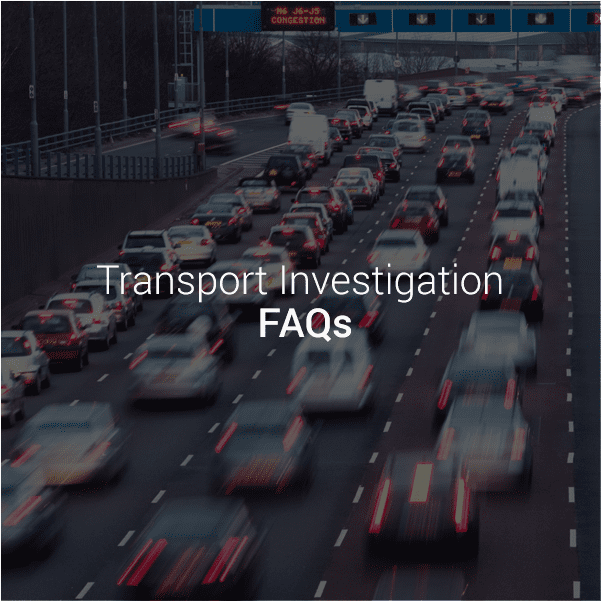Understanding Perverting the Course of Justice in Traffic Cases
Perverting the course of justice is a serious offence that can have significant legal repercussions, especially in the context of traffic violations. In 2022, 75% of English residents aged 17 and over held a driving licence, with 236,480 motorists being successfully prosecuted for exceeding the speed limit. Whilst speeding is a non-recordable offence and does not show up on the Police National Computer, those who reach 12 points on their driving licence in 3 years may face a period of disqualification.
It is, therefore, no surprise that those accused ask family members or friends to accept penalty points on their behalf to allow them to continue driving. However, what some don’t realise is that accepting penalty points on behalf of another leaves them and the driver vulnerable to being prosecuted for perverting the course of justice and sentenced to a term of imprisonment.
In this guide, expert criminal defence solicitor Shannon Keenan explains the legal consequences of perverting the course of justice in traffic offences and provides essential advice for those facing prosecution.
If you’re interested in a particular section, use the links below to navigate straight to it:
- What is perverting the course of justice?
- Perverting the course of justice examples
- How serious is perverting the course of justice?
- How is perverting the course of justice proven?
- Driving offences and perverting the course of justice
- What are the sentencing guidelines for perverting the course of justice?
- What rights do you have if accused of perverting the course of justice?
- What to do if you are accused of perverting the course of justice
- How we can help
Need assistance navigating allegations of perverting the course of justice? Contact our team today.
What is perverting the course of justice?
Perverting the course of justice is a serious and complex offence where the accused;
- Does an act or series of acts
- Which has or have a tendency to pervert; and
- Which is or are intended to pervert;
- The course of public justice.
These elements derive from common law, which means that they have been developed over time by the Courts. The offence encompasses a wide range of conduct, including fabricating or falsifying evidence, interfering with witnesses, and obstructing the police.
The essence of the offence lies in the intention to pervert the course of public justice, which must be proven by the prosecution.
Is perverting the course of justice the same as wasting police time?
No, wasting police time is a less serious offence. It refers to any action that results in unnecessary use of police time, whether or not it directly relates to a criminal investigation.
This is classified as a summary-only offence, with a maximum sentence of six months in prison.
Is perjury the same as perverting the course of justice?
Perjury occurs when a witness (or interpreter) knowingly provides false testimony during legal proceedings, potentially influencing the outcome of the case.
It falls under the broader category of perverting the course of justice and carries a maximum sentence of seven years imprisonment.
Perverting the course of justice examples
The most common offences charged as perverting the course of justice are;
- Concealing evidence from police
- Tampering with evidence
- Giving false information during a police interview
- Assisting someone else in the evasion of arrest
- Intimidation of witnesses during a court case
- Interference with jurors during a court case
How serious is perverting the course of justice?
Perverting the course of justice is a highly serious indictable-only offence, meaning it can only be heard in the Crown Court. Other offences in this category include murder, manslaughter, robbery, and rape, which gives you some indication of the seriousness with which the Crown Prosecution Service (CPS) treats allegations of perverting the course of justice.
How is perverting the course of justice proven?
For a charge of perverting the course of justice to be brought, the outcome of the criminal case in question does not actually have to have been impacted. Any deliberate attempt to interfere with justice is enough to establish the offence, as long as it can be shown that the act occurred and had the potential to influence the outcome of a case.
Driving offences and perverting the course of justice
While motoring offences like speeding may be seen as minor compared to other crimes, they can still be linked to perverting the course of justice.
Despite being on the lower end of criminal offences, these cases are treated very seriously. The CPS often imposes prison sentences of up to 12 months for attempts to pervert the course of justice in relation to traffic offences.
Examples of perverting the course of justice in relation to a traffic offence include:
- Providing false identification and accepting penalty points on behalf of another
- Destroying footage from a dash cam or security camera that recorded a driver committing a traffic offence
- Falsely claiming to be the driver at the time of a traffic accident
- Concealing a driving offence
- Threatening or intimidating a witness of a driving offence
- Providing a false alibi or obstructing a police investigation
- Assisting a person to evade arrest in relation to a driving offence
What are the sentencing guidelines for perverting the course of justice?
In October 2023, the Sentencing Council introduced new guidelines to provide consistency and clarity in sentencing offenders convicted of perverting the course of justice and witness intimidation in England and Wales. Previously, sentencing relied heavily on varying case law, leading to discrepancies in sentencing outcomes.
The new, structured approach categorises offences into three levels of culpability and harm. Factors such as the planned nature of the conduct, the seriousness of the underlying offence, and any breach of trust can elevate culpability. Similarly, harm is assessed based on the consequences for innocent parties and the overall impact on the justice system.
Aggravating and mitigating factors that may influence sentencing are also considered.
What is the minimum sentence for preventing the course of justice?
The offence of perverting the course of justice can carry a wide range of sentences, depending on the severity of the case. In less serious instances, such as where the custody threshold is not met, the minimum sentence could be a community order, but the starting point is usually a custodial sentence.
What is the maximum sentence for preventing the course of justice?
The maximum sentence for perverting the course of justice is life imprisonment, though this is reserved for the most severe cases. The typical sentencing range can extend up to 7 years in prison and/or a fine. For more specific offences, such as accepting penalty points on another’s behalf, the sentence can go up to 24 months in custody.
What rights do you have if accused of perverting the course of justice?
If you are accused of perverting the course of justice, you are within your rights to:
- You can choose to remain silent during a police or voluntary interview.
- You are entitled to refuse an interview until a specialist solicitor is present to advise you.
- You have the right to delay any questioning until a solicitor experienced in handling road traffic or criminal offences arrives.
- If you dispute the accusation, you can formally plead not guilty to the charge.
- You are also entitled to request further information or clarification before deciding on your plea in court.
What to do if you are accused of perverting the course of justice
If you have been accused of perverting the course of justice in relation to a traffic offence, you must seek expert legal advice from a criminal defence solicitor as soon as possible. Specialist advice and representation can also help you negotiate the police interview process while ensuring that you do not say anything to your disadvantage.
It’s also important to avoid discussing the details of the accusation with anyone other than your legal representative, as any statements you make could potentially be used as evidence in court.
How we can help
If you find yourself facing allegations of perverting the court of justice, our Criminal Defence Team is here to assist you. Whether you are under police investigation or facing Court Proceedings, the team can advise you on whether they have the necessary evidence to prove the case against you.
Contact us online or call and a member of our team will be able to speak with you and discuss how we can help.
Note: This guide provides general information and is not intended as legal advice for any specific case or individual situation. Richard Nelson LLP cannot accept liability for anyone relying on this content without seeking tailored legal guidance. If you need specific advice regarding your own case, please get in touch with us, and we will be happy to provide expert legal assistance.



